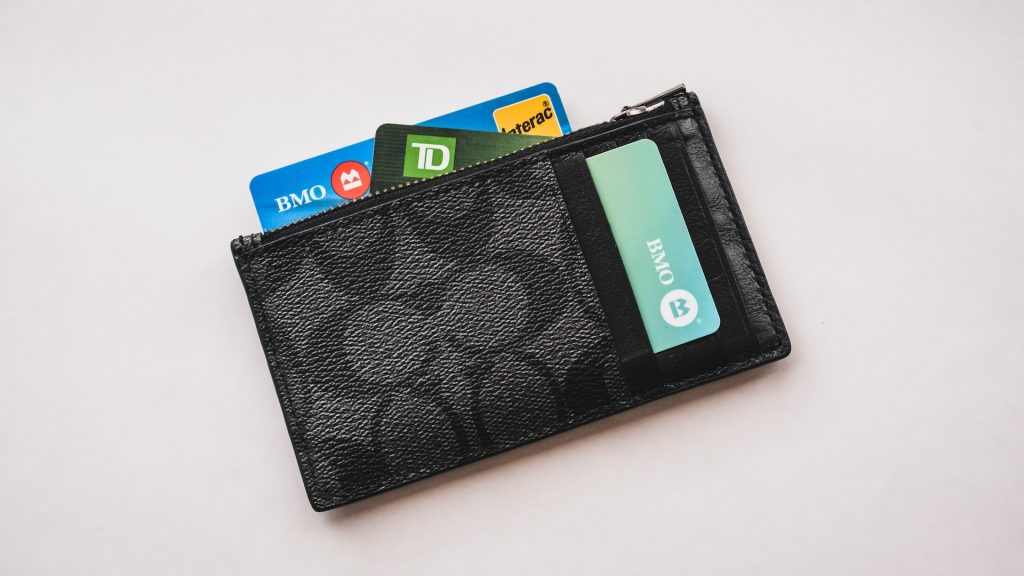Financial transactions can be complex, and hidden fees are one of the pitfalls that many consumers and investors face. Among these fees, “junk fees” are a term that often comes up. But what exactly are junk fees, and why should you be concerned about them? In this comprehensive article, we’ll delve deep into the world of junk fees, exploring their definition, common examples, and strategies to avoid falling victim to them.
What Are Junk Fees?
Junk fees, in the realm of personal finance and investments, refer to unnecessary or excessive charges that are imposed on consumers or investors by financial institutions, service providers, or other entities. These fees are often hidden or not adequately disclosed, making it difficult for individuals to understand the true cost of a transaction or service. Junk fees can significantly erode your financial gains and may result in a sense of unfairness, as they often provide little to no value in return.
Common Examples of Junk Fees
To better understand junk fees, let’s explore some common examples encountered in various financial and investment scenarios:
Mortgage Junk Fees:
Underwriting Fees: Some lenders charge excessive underwriting fees, which are meant to cover the cost of evaluating a mortgage application.
Rate Lock Fees: These fees are imposed when borrowers request to lock in a specific interest rate.
Processing Fees: Lenders may charge processing fees, even though most of the processing is automated and covered by the origination fee.
Credit Card Junk Fees:
Annual Fees: While some credit cards offer valuable rewards, others charge annual fees that can be considered excessive, especially if the benefits don’t outweigh the cost.
Overlimit Fees: These fees are imposed when you exceed your credit limit, often without adequate warning.
Investment Junk Fees:
12b-1 Fees: Mutual funds may charge 12b-1 fees, which are marketing and distribution fees that can eat into your returns.
Trading Commissions: Brokerage firms may charge high trading commissions, making it costly to buy and sell securities.
Banking Junk Fees:
ATM Fees: Banks may charge non-customers excessive fees for using their ATMs.
Overdraft Fees: Overdraft fees can be substantial and often result from small, unintentional account balances.
Real Estate Junk Fees:
Transaction Coordinator Fees: These fees are often charged in real estate transactions but may not provide substantial value.
Administrative Fees: Some real estate companies may add administrative fees to your closing costs.
Auto Loan Junk Fees:
Origination Fees: Lenders may charge origination fees for processing an auto loan, which can add to the overall cost.
These are just a few examples of junk fees that individuals may encounter in their financial dealings. In each case, the fees may seem small individually, but they can add up significantly over time, affecting your overall financial health.
The Impact of Junk Fees
Junk fees can have several negative impacts on consumers and investors:
Reduced Returns: In investment scenarios, fees can eat into your returns, leading to lower profits over time. For example, high 12b-1 fees in mutual funds can significantly reduce your investment gains.
Increased Costs: Junk fees can make financial products and services more expensive than they need to be. This, in turn, can affect your ability to save, invest, or pay off debt effectively.
Lack of Transparency: The hidden nature of many junk fees means that consumers and investors often don’t realize they are being charged until it’s too late. This lack of transparency can lead to feelings of mistrust and frustration.
Financial Stress: Paying unnecessary fees can lead to financial stress and uncertainty, especially for those on tight budgets or fixed incomes.
Inefficiency: In cases where fees don’t provide any additional value, they can be seen as an inefficient allocation of resources.
Now that we’ve explored what junk fees are and their potential impact, let’s discuss some strategies to avoid falling victim to them.
How to Avoid Junk Fees
Read the Fine Print: Whether you’re signing up for a credit card, taking out a mortgage, or investing in a mutual fund, carefully read all the terms and conditions. Look for any mention of fees, and ask for clarification if something is unclear.
Compare Options: Don’t settle for the first financial product or service you come across. Compare multiple options to find the one with the most favorable fee structure.
Negotiate: In many cases, fees are negotiable. Don’t hesitate to ask lenders, service providers, or even your bank to waive or reduce certain fees, especially if you have a good credit history or a long-standing relationship.
Review Account Statements: Regularly review your bank and credit card statements to spot any unexpected or unauthorized fees. If you notice any, contact the provider for clarification and resolution.
Choose Low-Cost Investments: When investing, opt for low-cost index funds or ETFs that have lower expense ratios and fewer hidden fees.
Use Fee-Free Services: Utilize banks, credit unions, and financial institutions that offer fee-free or low-fee services, such as no-fee ATMs or no-annual-fee credit cards.
Be Wary of Upgrades: When offered an upgraded service or account, carefully consider whether the benefits outweigh the additional costs. Often, basic services are sufficient for most individuals.
Educate Yourself: Take the time to educate yourself about the various fees associated with financial products and services. Knowledge is your best defense against being overcharged.
Seek Professional Advice: If you’re unsure about a financial decision, consider consulting with a financial advisor who can help you navigate the complexities and identify any potential hidden fees.
Report Unethical Practices: If you believe you’ve been subjected to unfair or unethical fee practices, consider reporting the issue to relevant regulatory authorities or consumer protection agencies.
Junk fees can be a significant drain on your finances, eroding your savings and investments over time. Understanding what junk fees are and being vigilant in identifying and avoiding them is essential for maintaining your financial health. By reading the fine print, comparing options, and being proactive in negotiating fees, you can protect yourself from unnecessary financial burdens and ensure that your hard-earned money is working for you, not being siphoned away by hidden charges. In a world where financial transparency is not always guaranteed, being an informed and savvy consumer is your best defense against the scourge of junk fees.
Regulatory Measures and Consumer Rights
While the strategies mentioned in Part I can help you avoid falling victim to junk fees, it’s also important to be aware of the regulatory measures in place to protect consumers from unfair or deceptive fee practices. Additionally, understanding your rights as a consumer can empower you to take action when necessary.
Regulatory Measures:
Truth in Savings Act (TISA): TISA is a federal law that requires financial institutions to provide clear and accurate information about deposit accounts, including fees and interest rates. This law helps consumers make informed decisions about where to open accounts and how to manage their finances.
Truth in Lending Act (TILA): TILA is another federal law that requires lenders to disclose the full cost of borrowing, including interest rates and fees, in a clear and understandable manner. This transparency enables borrowers to compare loan offers and avoid loans with excessive fees.
Consumer Financial Protection Bureau (CFPB): The CFPB is a government agency that focuses on protecting consumers in the financial marketplace. They have the authority to enforce regulations related to financial products and services, including rules against unfair or deceptive practices. Consumers can file complaints with the CFPB if they believe they’ve been subjected to unfair fees.
State Regulations: In addition to federal laws, many states have their own consumer protection laws and agencies that regulate financial services. These state-level regulations can provide additional safeguards against excessive fees and deceptive practices.
Consumer Rights:
Right to Fee Disclosure: As a consumer, you have the right to clear and accurate fee disclosures for financial products and services. Financial institutions are obligated to provide this information upfront, and you can request it if it’s not readily available.
Right to Dispute Fees: If you believe you’ve been charged unjustified or excessive fees, you have the right to dispute them with the financial institution. Be sure to keep records of your communications and any documentation related to the fees in question.
Right to Switch Providers: You have the right to switch to a different financial institution or service provider if you’re not satisfied with the fees or terms of your current arrangement. However, be mindful of any penalties or costs associated with closing accounts or canceling services.
Right to File Complaints: If you encounter issues with junk fees and feel that your concerns are not adequately addressed, you have the right to file complaints with regulatory agencies like the CFPB, state authorities, or consumer protection organizations.
Right to Transparency: Financial institutions are obligated to provide clear and understandable terms and conditions for their products and services. If you encounter complex or confusing language, ask for clarification or seek help from a trusted advisor.
Right to Fairness: You have the right to be treated fairly and ethically by financial institutions. If you believe you’ve been subjected to discriminatory or unethical fee practices, you can take action through legal channels.
Junk fees, while often hidden or disguised, are not an unavoidable part of financial transactions. By educating yourself about these fees, being vigilant in reading terms and conditions, and understanding your rights as a consumer, you can take steps to protect your financial well-being. Moreover, the regulatory measures in place at both the federal and state levels are designed to hold financial institutions accountable for their fee practices.
Remember that financial transparency and fairness are essential for maintaining trust and integrity in the financial industry. If you ever encounter junk fees that you believe are unfair or excessive, don’t hesitate to take action. Whether it’s negotiating with your service provider, reporting the issue to regulatory agencies, or seeking legal advice, there are avenues available to help you fight against unjust fee practices and ensure that your financial transactions are conducted on fair and equitable terms.






